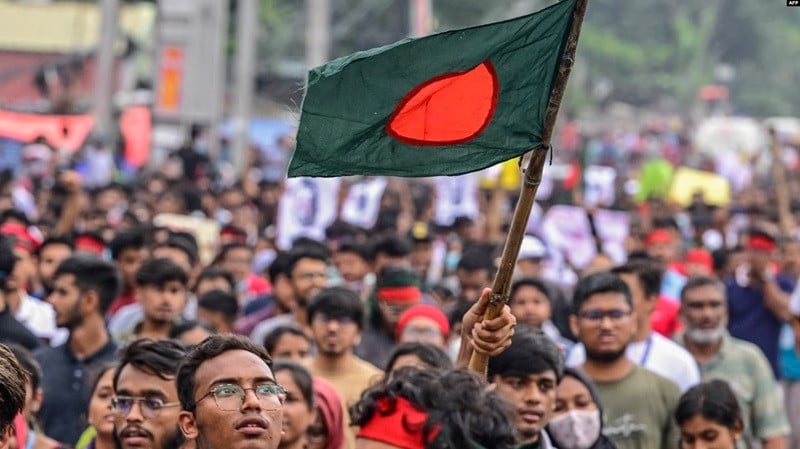In Bangladesh, student leaders have launched a nationwide civil disobedience movement in response to a brutal police crackdown that resulted in over 200 deaths.
The initial protests, driven by dissatisfaction with civil service job quotas, have evolved into a larger movement challenging Prime Minister Sheikh Hasina’s government.
The call for civil disobedience was made by the Students Against Discrimination group on Saturday. They urged citizens to participate in various forms of non-cooperation starting Sunday. This includes withholding taxes and utility payments, staging strikes by government employees, and ceasing remittance transfers through banks.
Asif Mahmud, the group’s spokesperson, highlighted that the movement aims to pressure the government into fulfilling several demands. These include a public apology from Prime Minister Hasina and the dismissal of specific ministers.
The unrest, which began in early July, was originally fueled by dissatisfaction with a quota system for government jobs that favored certain groups.
Although the Supreme Court later reduced the quotas, tensions remained high among graduates facing severe unemployment. What began as largely peaceful protests turned violent following clashes with police and pro-government factions.
In response to the escalating violence, the government imposed a nationwide curfew, deployed troops, and suspended mobile internet services for 11 days. Despite these measures, demonstrations persisted, with large crowds continuing to protest after Friday prayers.
The situation has been exacerbated by demands for Prime Minister Hasina’s resignation. On Saturday, Hasina offered to engage in “unconditional dialogue” with student leaders in an attempt to de-escalate the crisis. However, her offer was rejected by the students, who are calling for concrete actions rather than mere promises.
The international community has condemned the government’s response to the protests. European Union foreign policy chief Josep Borrell has called for an international investigation into the “excessive and lethal force” used against demonstrators. The United Nations has reported that at least 32 children were among those killed in the violence.


